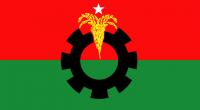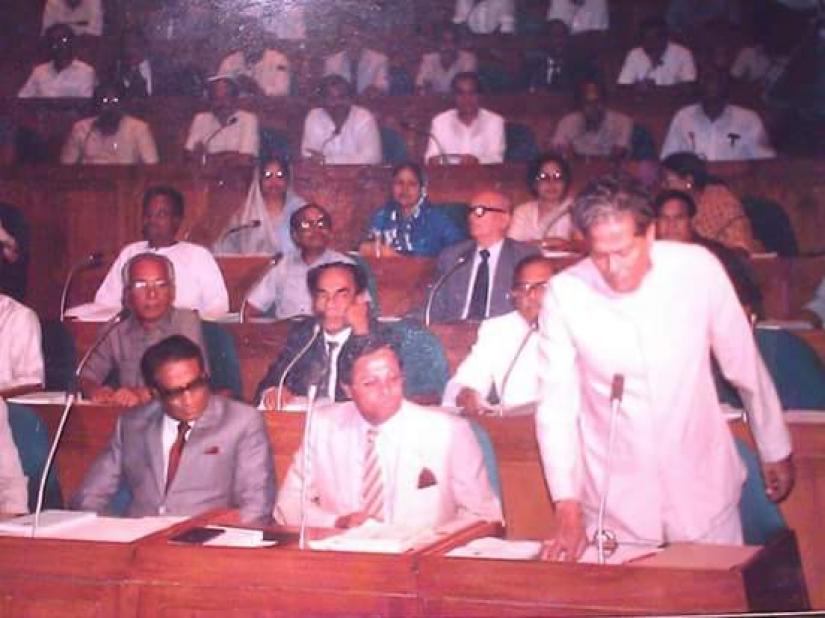 Jatiya Party (JaPa) came into being on Jan 1, 1986. Five allied parties united to form one entity. In 1990, Ershad was forced to step down from power. After the beginning of parliamentary democracy in the country, his importance rose since both the BNP and Awami League wanted him by their side to remain in power.
Jatiya Party (JaPa) came into being on Jan 1, 1986. Five allied parties united to form one entity. In 1990, Ershad was forced to step down from power. After the beginning of parliamentary democracy in the country, his importance rose since both the BNP and Awami League wanted him by their side to remain in power.
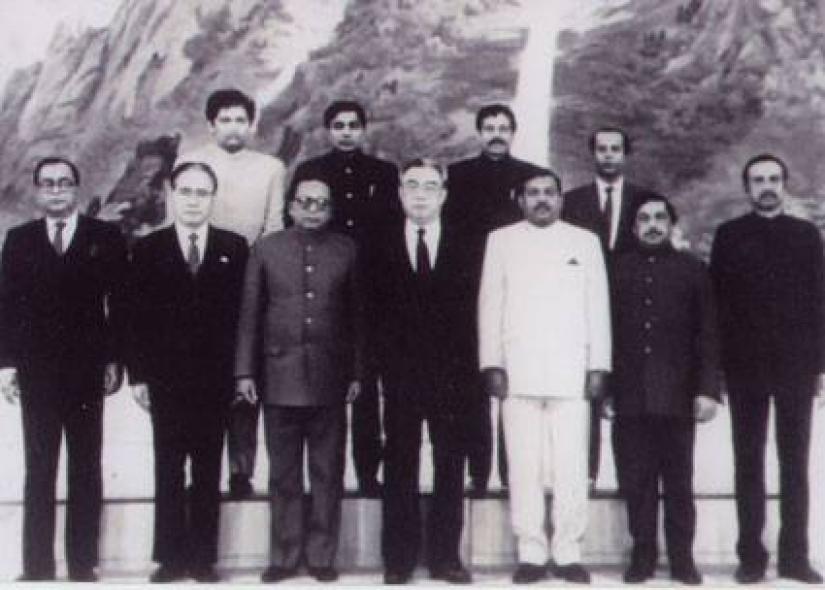 However, many who was by Ershad’s side when he was in power left him later. Maulana Mohammad Ishaq, Amir of Khilafat Majlish, said: “Barrister Moudud Ahmed, KM Obaidur Rahman, Shah Moazzem Hossain and others left him to join another political party.”
However, many who was by Ershad’s side when he was in power left him later. Maulana Mohammad Ishaq, Amir of Khilafat Majlish, said: “Barrister Moudud Ahmed, KM Obaidur Rahman, Shah Moazzem Hossain and others left him to join another political party.”
Many of them were actually in BNP but when BNP declined after the death of its founder Ziaur Rahman, they joined Jatiya Party to remain in power and relevant.
In 1988, Barrister Moudud was prime minister of the Ershad government; he also looked after the ministry of industries; now he is a standing committee member of BNP. In 2001, he was BNP’s law minister. Founding secretary general of Jatiya Party, Prof Dr M A Matin, was BNP’s home minister.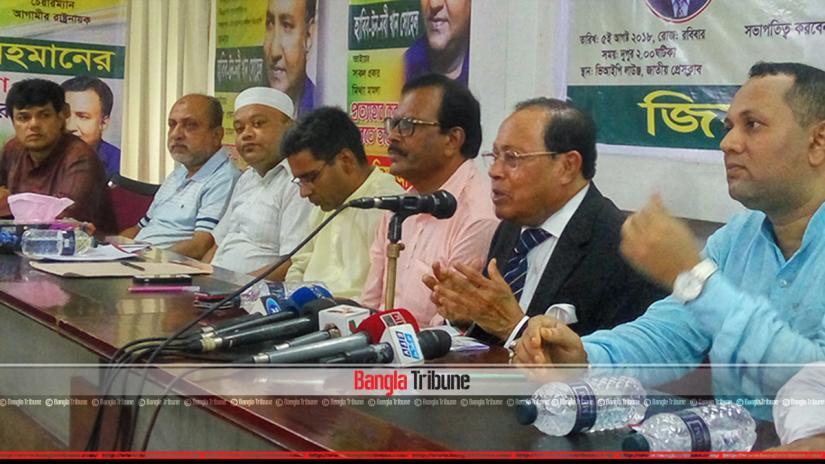
Ershad regime’s deputy prime- minister, Kazi Zafar Ahmed, formed another faction of Jatiya Party.
Ershad’s foreign minister was Humayun Rashid Choudhury who was later elected an MP from the Awami League in 1996 and served as the Speaker.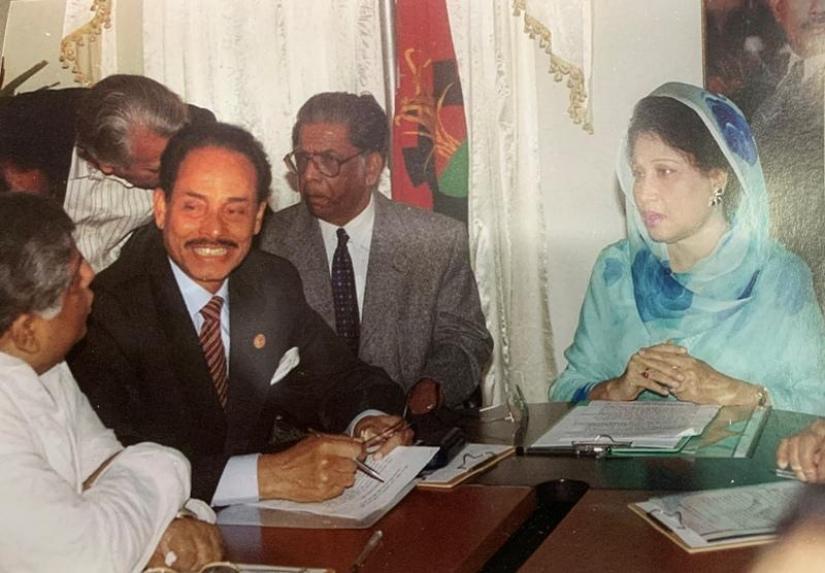
Naziur Rahman Manzur, who served as a minister in Ershad’s regime and later went on to become the Dhaka mayor, also left him after to form a JaPa faction styled Bangladesh Jatiya Party (BJP). His son, Andaleeve Rahman succeeded Manzur to lead the party.
Mizanur Rahman Chowdhury, who served as the prime minister in Ershad administration, also left him to form JaPa faction with Manzur, but broke away later to join the Awami League, where he started his political career in the early in the early 60s.
When Jatiya Party was formed, allied parties Janadal, UPPM Ganatantrik Party, BNP (Shah) and Muslim League (Sha) dissolved their parties and joined JP.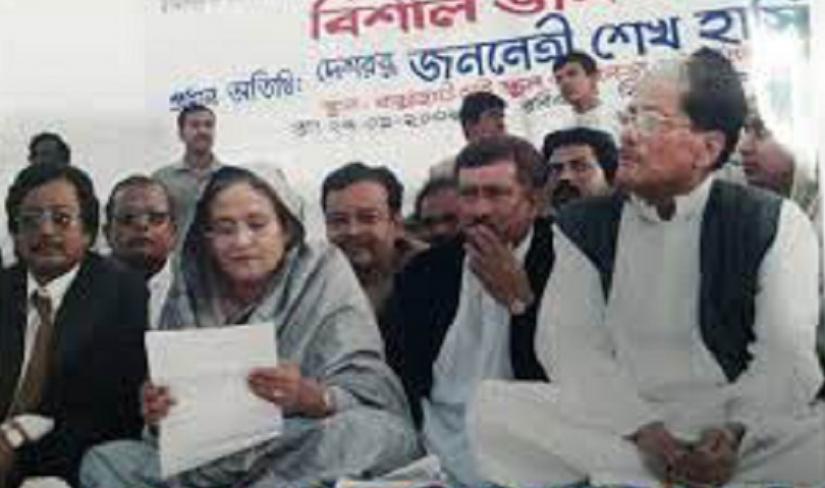
During Ershad regime, Mufti Muhammad Wakkas was minister for religious affairs who is now chairman of one faction of Jamiat-e-Ulama-e-Islam. He said: “I was with Ershad from 86 till 90 and joined JP after winning election as an independent candidate.”
"My main party was Jamaat and later I returned to it", he observed.
Wakkas claims that when he joined JP, Ershad wanted to give him Two hundred thousand taka which he refused.
Ershad has played a role in the development of Bangladesh, he observed.

